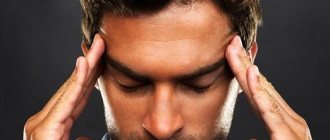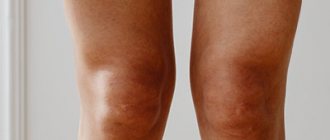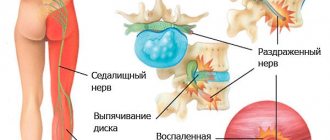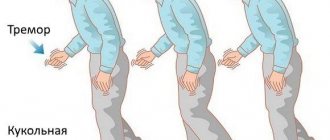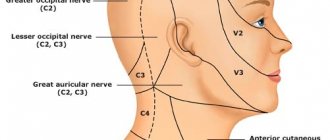Home care for people with dementia
Caring for older people with dementia is based on the constant presence of a caregiver next to the patient. Considering that a loved one is losing most life skills, the support of a caregiver is required throughout the day in all activities.
Care for mild dementia
The patient is helped to perform morning hygiene procedures, get dressed, and get himself in order. Food is prepared for him and he is fed 5 times a day. Correlate diet and medication schedule. Physiological functions are monitored. If the elderly person does not maintain control of the toilet, a diaper is put on him and changed when he is full.
If motor skills are preserved, the ward is taken for a walk. Fresh air stimulates the functioning of the whole body, filling the lungs with oxygen.
It is advisable to conduct classes on the development of cognitive abilities in the first half of the day. At this time, the brain is more active. The materials used for classes are:
- Crosswords;
- Board games;
- collections of exercises.
Physical exercise is also beneficial for the patient. It is recommended to do gymnastics in the morning, breathing exercises, and accustom the ward to Nordic walking.
Treatment of the disease should be under the supervision of a physician. Periodically, a psychiatrist is called to the patient’s home so that the doctor can assess the elderly person’s condition and make timely adjustments to the treatment regimen.
Care for severe dementia
When a patient with dementia loses the ability to move, it is necessary to care for him as for a bedridden patient. Much attention during care is paid to preventing the occurrence of bedsores. The patient's position is regularly changed: they are turned over on the right and left side, on the back, placing the limbs comfortably. They massage those places where the patient has been lying for a long time, avoiding tissue atrophy. The bedding is changed frequently, even if there are small areas of soiling.
For an elderly person, choose comfortable clothes without rough seams made from natural cotton. The lower part of the kit must be securely fastened so that the patient cannot tear off the diapers on his own. In an unconscious state, the patient can stain himself and the bed with the contents, scratch his skin, and cause an infection.
You may also be interested in the article: Proper care for bedridden patients
Food for an elderly person with dementia should be of a liquid consistency: problems arise with chewing and swallowing food. When feeding, the patient is seated, placing pillows under his back. For drinks, closed sippy cups are used. The food is served at a warm temperature. People with senile dementia will not be able to cool it down on their own. And cold dishes cause aversion in a seriously ill person.
Drugs for severe dementia in older people
A severe degree of the disease is characterized by general personality degradation. The patient no longer recognizes relatives and friends, cannot eat or care for himself. He is haunted by delirium and fear of aggression from other people.
At this stage, the attending physician prescribes Halopiredol or new generation analog drugs: Olanzapine, Risperidone. At the same time, he continues to take previously prescribed medications: antidepressants, sedatives and to improve memory.
- Risperidone.
We recommend
“Examination of an elderly person - which doctors need to be seen regularly” More
Indications for use are dementia of the schizophrenic type: the appearance of psychosis, delusions and hallucinations in the patient. Taking the drug extinguishes outbreaks of aggression and irritability, reduces hostility and suspicion, feelings of anxiety, detachment or guilt, and relieves depression. A person begins to think and communicate adequately, and speech returns to him. Contraindications include Parkinson's disease and epilepsy.
- Olanzapine.
This drug is prescribed today instead of Halopiredol. In addition to being effective against hallucinations, it also relieves depression, anxiety, tension and other mental disorders. Indicated for dementia of the schizophrenic type. According to the study, Olanzapine is superior to Halopiredol in improving cognitive function and restoring mental disorders. Relapses during treatment with Olanzapine occur much less frequently. The drug should be taken for speech disorders, decreased social activity, acute manic attacks, schizophrenia, and dementia.
The medicine increases the risk of developing diabetes, hypertension, weight gain, cancer, cholelithiasis, myocardial infarction, and stroke. Therefore, it is contraindicated for people prone to these pathologies.
- Exelon patch.
The use of this remedy is convenient for the patient, as it does not require special skills. The patch serves to ensure constant delivery of the drug Rivastigmine through the skin. You just need to stick the patch on an area of the body where there is no close contact with clothing, at the same time every day. This will ensure that a strictly defined amount of the active substance enters the blood. The patient can take water procedures and swim in the pool. Only visiting the sauna or bathhouse is not allowed.
We recommend
“Centers for pensioners: what they are and how to get there” Read more
Tips for relatives of people with dementia
Caring for a loved one who suffers from dementia is hard work. Psychological burnout inevitably occurs. Watching your ward lose his mind every day has a negative impact on the condition of loved ones.
We recommend following expert advice when caring for an elderly person with dementia:
- Try to accept the disease and its manifestations in behavior. Remember that the patient’s negative statements about you, accusations of theft and deception are not his true thoughts and feelings, but symptoms of the disease.
- Create a warm emotional environment for the ward. You need him to be able to trust you. Then the seriously ill person will not experience anxiety and despair.
- Maintain a clear daily routine. A patient with dementia should develop a sleep-wake pattern to avoid confusion.
- Control your emotions, do not scream, no matter what actions the patient performs. Such reactions can often provoke him to run away from home.
- Do not demand a quick answer to a question from a sick person. He forgets the meaning of words and thinking occurs at a slow pace.
- Try to talk with the patient on different topics: this will help him maintain his speech. An elderly person remembers events of the past clearly; focus on this. In this way, you solve two problems: you support the patient in trying to remember information and evoke pleasant feelings in him. The elderly enjoy reminiscing about their childhood and youth.
- If you feel like you are on the verge of a breakdown, give yourself a social break: ask for help from loved ones, hire a nurse, find a good boarding house for an elderly person.
A patient with dementia is often placed in a boarding house for the elderly when it is not possible to care for him at home.
Drugs for the treatment of moderate dementia in the elderly
When the disease passes into the second stage, the list of independent actions of the patient is reduced to performing simple everyday manipulations. At this stage, another group of drugs is prescribed.
- Cerebrolysin.
We recommend
“How to communicate with elderly parents so that everyone is comfortable” Read more
The drug contains low molecular weight peptides combined with amino acids, which has a positive effect on brain function. Namely: it protects neurons from depressing factors and stimulates intercellular metabolism. As a result, memory and attention improve, and the patient’s thinking is activated. The course of treatment is usually from 4 to 6 weeks. The method of administering the drug is intravenously using a dropper. This remedy has a prolonged effect: accumulating in the body, it creates a long-term therapeutic effect.
- Actovegin.
Designed to improve oxygen supply to brain cells and increase the activity of intracellular metabolism. It is used intravenously through a dropper for two weeks, then in tablets. During and after treatment, cognitive functions stabilize and psycho-emotional symptoms of dementia weaken.
- Akatinol Memantine.
Helps normalize metabolism and improve the transmission of brain impulses, restore memory, concentrate attention, and accelerate the thinking process. As a result of taking the drug, the patient’s skills in practical actions in everyday life and self-care are restored. Minor side effects do not interfere with the treatment of dementia and its manifestations:
- Alzheimer's diseases.
- Parkinson's disease.
- Loss of memories.
- Low level of concentration.
- Rivastigmine (Alcenorm)
Serves to reduce the breakdown of acetylcholine, establishing connections between neurons by accumulating in the gray matter of the brain and hippocampus. At the same time, the rate of formation of amyloid plaques, which destroy neurons, decreases. As a result, memory improves and quality of life increases.
Caring for a patient with dementia in a boarding house
Boarding houses are divided into two types: public and private. People are admitted to public institutions based on referrals from social service centers. No special voucher is required for a private boarding house. The establishments provide similar services. Differences may relate to the quality and cost of service.
The advantages of a private boarding house are:
- small number of residents;
- modern rehabilitation equipment and technical equipment;
- personal care for seriously ill patients.
At home, care falls on the shoulders of one family member; in a boarding house, care services are provided by different employees. The staff not only have experience in caring for older people with chronic diseases, but also undergo regular training. A patient with dementia receives:
- medical care for illness;
- psychological assistance;
- hygiene care;
- fractional dietary meals.
Patients do not feel lonely. The elderly live surrounded by peers; leisure programs and hobby classes are organized for them.
You may also be interested in the article: How to choose a private facility for the elderly
Dementia medications for seniors without prescriptions
If relatives know about the real state of affairs of an elderly person suffering from dementia and have an idea of how to provide help without turning to specialists, then pharmacies have medications that can be purchased without a prescription:
- "Melaxen".
Neuroleptic, which is used as an additional treatment. It has an anticonvulsant and sedative effect, helps with delusional states and hallucinations, and is prescribed as a sleeping pill. Contraindications to its use are as follows: myeloma, acute leukemia, diseases of the immune system, kidney pathologies, sensitivity to the components of the drug. An analogue of Melaxen is Vita-melatonin.
- "Donormil."
A medicine with a wide range of applications for dementia in the elderly. Has a pronounced hypnotic and calming effect. It is available in tablet form, which makes it easy to follow the dosage and use. Incorrect administration and dose of the drug can cause side effects. This drug should not be prescribed for existing urinary tract diseases, galactosemia, closed-angle glaucoma, or intolerance to the components in its composition. Reviews of this medicine for dementia in older people indicate that patients are satisfied with the results obtained from taking it. Analogues of the drug are “Bromcamphor”, “Adonis-Bromine”.
- "Afobazole".
It is a selective anxiolytic that restores cognitive properties. Used for conditions of dementia and asthenia. The medicine has proven itself to have virtually no contraindications for use. The only reason why its use is prohibited is individual intolerance. The drug has long-acting properties. The analogues presented on the market are “Adaptol”, “Mebical”.
Prevention of dementia
Eliminating the causes of dementia should begin at a young age.
- Quit smoking and alcohol. Abuse of bad habits causes cerebral infarctions and strokes.
- Play sports and exercise. Movement improves the exchange of oxygen in the blood, the cells receive constant fresh nutrition. Walking improves thinking and attention.
- Remove spicy, fatty foods with excess carbohydrates from the menu. Include fresh vegetables, fruits, nuts, cereals, fish and seafood in your diet.
- Avoid intoxication of the body. Do not choose work associated with hazardous production.
- Get tested regularly for blood sugar and cholesterol levels, and do an ultrasound of your internal organs.
- Train your intellect constantly: learn new information, a foreign language, a profession.
It is important to undergo a medical examination every year from a general practitioner, independently or from a labor organization.
How sleep and dementia are linked
Everyone knows that during sleep we are in a motionless, relaxed state.
But it is also known that during the night we change our position more than once and make various movements: we shudder, twitch, some even speak in their sleep. According to the results of the study, people who experience such phenomena are more predisposed to developing dementia and Parkinson's disease. The experiment, which took place over five years with the participation of 93 people with such symptoms, showed that 26 of them showed signs of neurodegenerative changes (14 had Parkinson's disease, 11 had dementia of the Alzheimer's type or dementia with Lewy bodies, one – a rare disease affecting motor functions, blood pressure and other reflexes). The risk of pathology was 18% in a five-year period, 41% in a ten-year period and 52% in a twelve-year period. Insomnia in dementia occurs when a person, due to lack of sleep, begins to suffer from hallucinations, depression and other similar problems that arise years before other symptoms are detected. This discovery allows us to better understand how neurodegenerative diseases develop, what to do and what preventive measures need to be taken even before the first signs of abnormalities. Statistics confirm that senile dementia in people aged 60 to 69 years occurs in approximately 2% of cases, and after 80 years, up to 20% of older citizens are susceptible to it. By age 90, your chances of getting the disease increase to 45%. However, it should be noted that the above figures are quite approximate.
The main manifestations of sleep disturbance in older people are persistent complaints of drowsiness during the day and insomnia at night, while the elderly wander around the apartment, fussing, trying to prepare food, moving furniture, etc., which greatly disturbs their household and neighbors. Symptoms also include shallow and intermittent sleep, vivid multiple dreams (often nightmares), early awakenings with a feeling of anxiety and restlessness, accompanied by difficulty or inability to fall asleep again.
Dementia is an incurable disease associated with impaired cognitive function of the brain due to degenerative changes caused by the death of neurons.
Insomnia itself can also cause the development of such a disease. Researchers at the University of Washington have discovered a link between sleep and dementia. As a result of the experiments, it was found that during sleep the concentration of amyloid protein decreases.
Read material on the topic: Sanatorium for retirees

